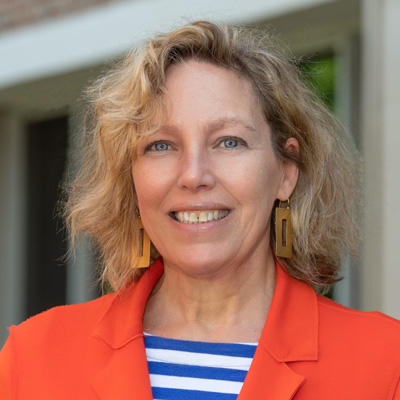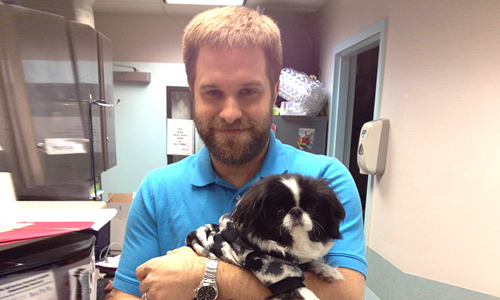Dr. Curtis Plowgian ’06 didn’t take the usual route to his career in veterinary medicine. He took a detour through France before coming back to the states and getting his veterinary degree.
Immediately after graduation, Dr. Plowgian, a French major and a chemistry minor, taught English in France on a Fulbright scholarship. Upon returning home, he worked various jobs, including a position at the French consulate in Chicago, where he worked with French companies that wanted to do business in the United States. “They were all desk jobs,” he said, “I did a lot with international businesses and teaching.”
In his free time, Dr. Plowgian was volunteering at the Pets Are Worth Savings (PAWS) spay and neuter clinic in Chicago. “I eventually realized that on the days I volunteered, the time passed faster,” he said. “It was much more rewarding than sitting in a cubicle.”
Dr. Plowgian knew the difficulties of applying to veterinary programs. “I was warned by my colleagues at PAWS that people don’t usually get in with their first application,” he said. “I also knew that I had only the minimum number of animal experience hours, even if my application was academically strong.”
Contrary to conventional wisdom, Dr. Plowgian was accepted on his first try to his first choice program. “The veterinary school that accepted me was looking to develop students and graduates with communication skills, and my background in language set me apart from other candidates.”
The connection between communication skills and veterinary science may not be obvious at first, but in the context of working with clients the relationship becomes clear. As Dr. Plowgian said, “You have to be able to listen to people and show sensitivity and compassion. Studying a foreign culture gave me a lot of experience in looking at things from different perspectives.”
Dr. Plowgian’s career in French is far from over, however. “Some of the biggest pharmaceutical companies that specialize in veterinary dermatology (his specialty) are French, he says. “So I get to put my language skills to use at annual meetings, and possibly even more frequently in the future depending on how things turn out.”


